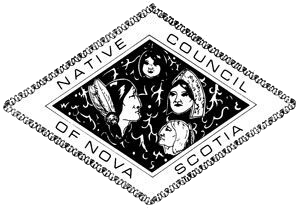How Do We Achieve Change
Through our contact relationships, determination, perseverance, collective resolve, dedication, effort and work, for fifty (50) years the Native Council of Nova Scotia Community continues to go forward to a better future meeting all forms of obstacles and challenges united. As direct descendant Mi’kmaq/Aboriginal Peoples, our continuum will not be broken. There is no turning back.
The NCNS as a Community organized Aboriginal Peoples Representative Organization, advocating and helping our traditional ancestral homeland Mi’kmaq/Aboriginal Peoples improve their social and economic conditions and political situation, have initiated and administer a range of Governing Secretariates, Directorates, Commissions and deliver a range of Services, Programs, Projects and Initiatives for the benefit of our Community.
The Native Council of Nova Scotia advocates with all levels of government, the private and corporate sector, and Canadians at large. Together we can end the demeaning stereotype about our Community, eliminate disadvantage, stop discrimination, end prejudice and exclusion and begin reconciliation and inclusion of the Aboriginal Peoples of Canada in the promise that is Canada. Our collective voice is putting an end to vulnerability, silence and exclusion.
The Native Council of Nova Scotia as a self-governing Community organization achieves change, its missions and goals in partnership with countless Canadians, private and corporate individuals, as a Community. There are some government departments and agencies which accept the need to work with us to improve our social and economic situation.
The Native Council of Nova Scotia is an active affiliate of our national organization the Congress of Aboriginal Peoples (CAP). We are also one of the three Maritime Region Aboriginal Peoples Representative Organizations, who share and form united positions on regional issues through our intergovernmental leaders forum, the Maritime Aboriginal Peoples Council (MAPC). We also form domestic and international alliances with like-minded organizations and agencies working for change and the recognition of Indigenous Peoples throughout the world.
Although government Indian policy is slow to change, one day it will change. The denial of identity, the policy of listing and stereotyping: “who an Indian is and where an Indian belongs”, will give way to recognition and a reconciliation of People to People and Nation to Nation relationships – the vision that is the Federation of the Peoples of Canada.
By our persistence and perseverance, advocacy, raising awareness, our activities – our resolve, the NCNS Community of Mi’kmaq/Aboriginal Peoples remain determined to end oppression, social and economic exclusion, prejudice, stereotype, disadvantage and political vulnerability.
A constitutional reality now exists in Canada. The Aboriginal Peoples of Canada are a part of this great Federation of the Peoples of Canada. Recognition can no longer be denied or ignored. The task remaining is to effect a peoples to peoples relationship without superiority, subjugation, control, wardship and direct rule – respecting the dignity, merit, capacity, worth, distinctive culture, world view, and continuum of distinctive Peoples that is the promise of Canada – a Federation of the Peoples of Canada.
In 1995, the report of the “Royal Commission on Aboriginal Peoples” concluded that a fundamental change is needed in the relationship between Aboriginal Peoples and Canada.
In 1997, the Federal Government issued a statement calling for fundamental change in the relationship between Aboriginal and non-Aboriginal Peoples in Canada. A partnership based on the four (4) principles of mutual respect, responsibility, sharing and recognition as a beginning step for change.
In 2001, The Right Honourable Jean Chretien, Prime Minister of Canada stressed the need to listen:
“For too long, the voice of Aboriginal Peoples has not been heard in the councils of government or in the management of their own economic, social and cultural affairs…to overcome these challenges we must enter into a true dialogue and a true partnership with the goal of building a better future”.
